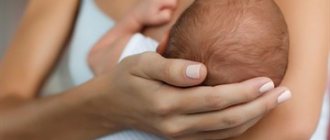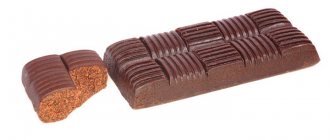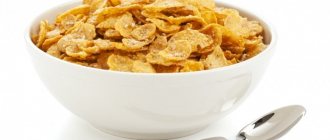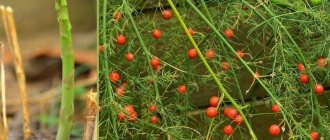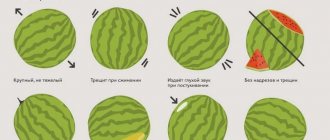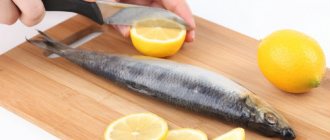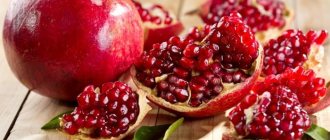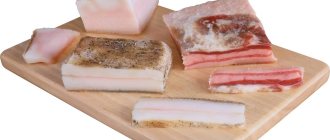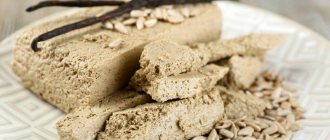If a woman is breastfeeding her baby, then she must follow all the recommendations of her doctor and follow a diet. This will prevent tummy problems in the newborn and the possible occurrence of allergies. Despite this, a nursing mother's diet should be varied and tasty in order to continue lactation longer. It is important that her diet contains the necessary vitamins and minerals. Experts recommend constantly including first courses in the menu, but are they all suitable for the mother and child during this period? Is it possible to have pea soup while breastfeeding?
The benefits of green peas
The main ingredient of pea soup is green peas. It has a useful composition.
Peas are rich in the following substances:
- It contains a lot of lysine. It has an anti-inflammatory effect. It improves immunity. Thanks to lysine, normal absorption of calcium occurs, which is especially important for the bodies of women and children.
- Cystine. It has a positive effect on lactation by stimulating the production of oxytocin.
- Vitamin B6. It takes part in the metabolism of amino acids. A lack of vitamin B6 manifests itself in the form of dry skin, dermatitis, sticky lips and bruises under the eyes.
- Selenium. It strengthens the immune system and overall human health.
- Protein. Peas, like other legumes, contain a lot of protein. In terms of the amount of protein, it is close to meat.
In addition, peas are rich in vitamins A, C, H, as well as minerals (phosphorus, magnesium, iron, sulfur, etc.).
Regular use of the product improves the condition of hair and skin, and also reduces the risk of heart and vascular diseases.
So is it possible to have pea soup while breastfeeding? By the way, you can also find canned peas on store shelves. However, such a product is undesirable for nursing mothers. It is best to consume fresh peas by preparing soups and other dishes from them.
Peas while breastfeeding
articles:
Most modern mothers are sure that peas during breastfeeding have a negative impact on the health of the newborn baby. Indeed, in the first few months of life, the baby’s digestive system is just beginning to adapt to unfamiliar living conditions.
At this stage, many experts advise nursing mothers to follow a strict diet so that the child does not feel ailments, disorders, allergies and other problems with the functioning of the stomach.
At the same time, supplementing their daily diet with new food products, most new mothers refuse to eat legumes, including peas. It is generally accepted that peas can cause increased gas formation, and a newborn baby will experience abdominal pain.
For fear of harming their child, young mothers refuse to eat peas in any form. However, most mothers in labor do not take into account the fact that all children are completely different, which means that the body’s reaction to some foods will be different.
Beneficial properties of peas for nursing mothers
1. Peas contain many useful substances that have a beneficial effect on the body of a nursing woman during lactation. In addition, this legume plant helps the baby develop and grow properly. 2. Peas produce essential amino acids: cystine and lysine.
Milk production in a nursing mother largely depends on the formation of the hormone oxytocin in the woman’s body. The formation of this substance depends on the work of disulfide cystine bridges, which are contained in the amino acid cystine. 3. Thanks to the production of lysine in the body, a nursing woman’s protective antiviral properties increase.
The amino acid increases the body's resistance to the development of herpes, respiratory infections and other viral diseases. Lysine promotes the process of calcium absorption in the body of a nursing mother. 4. Also, thanks to this amino acid, the process of transporting calcium into the bone tissue of the woman in labor is improved.
After all, after pregnancy, calcium in a woman’s body is washed out of the bones and takes part in the formation of the skeleton of the waking child. 5. Peas are useful for a nursing mother, as they contain an essential substance called pyridoxine. This substance helps amino acids break down and work properly.
But a lack of this component can cause dermatitis and seizures. 6. Peas also have a large amount of selenium, sugars, healthy fiber, they are saturated with fatty acids, a complex of vitamins and microelements: potassium, sodium, calcium, iron, iodine and phosphorus.
It regulates the water balance in a woman’s body, helps in the formation of red blood cells, improves brain activity, promotes the proper functioning of internal organs, removes heavy metals and blocks the entry of radioactive metals. And the calcium content in peas improves the structure of the bones and teeth of a young mother.
Truth and fiction about peas
Despite the positive composition of legumes, they are perceived ambiguously by the population of the country. Many people are afraid to eat peas due to possible stomach upset and increased gas formation. Women during lactation are also afraid of this.
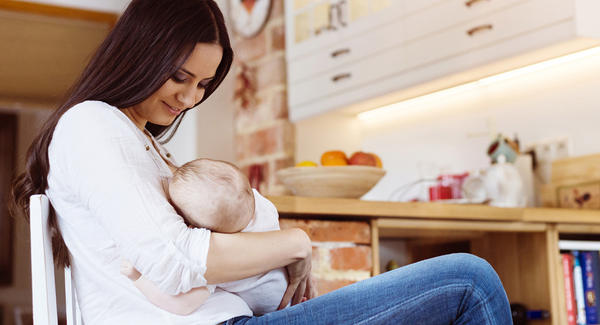
Is it possible to have pea soup while breastfeeding? It can and should be consumed, so the myths about the main product will be dispelled below:
- Peas are very high in calories. This is wrong. 100 g of peas contains only 60 kcal, so you can eat dishes made from them without damaging your figure.
- Peas increase increased gas formation. This statement is true, because the product contains plant proteins that are not completely broken down by the body. This leads to pain and cramps in the stomach.
- Are boiled peas and breastfeeding incompatible? This statement is completely wrong. After all, peas contain cystine, which promotes milk production.
Therefore, not all statements regarding green peas are true. After all, it contains many useful substances that have a positive effect on the organisms of mother and child.
Peas while breastfeeding
Peas are a healthy product that must be included in the diet of children and adults. However, many women who breastfeed are afraid to eat legumes for fear of harming the baby. Is it possible to eat peas while breastfeeding ?
How is it useful, what harm can it cause? How to properly introduce it into the diet? No time to read? Download a free list of allowed and prohibited foods during lactation
Should a nursing mother eat peas or not?
In the first months of a child’s life, his body gradually adapts to new conditions. At this time, the young mother must monitor her diet in order to avoid problems with the digestive organs and prevent an allergic reaction in the baby.
During the first months of your baby's life, it is better to avoid eating peas.
Green peas during breastfeeding
It is known that peas are legumes that cause increased gas formation. For this reason, many believe that a newborn baby will experience digestive problems if he receives milk from a mother who has consumed this product. Before answering the question of whether a nursing mother can eat peas, we should dwell in detail on the peculiarities of how they are absorbed by the body.
Peas contain a large amount of vegetable protein, which is broken down into amino acids after entering the gastrointestinal tract. Some of these substances are wasted to participate in the vital processes of the body, the rest are converted into a specific protein that is not absorbed by humans. It is this protein compound that partially disintegrates in the intestines and leads to increased gas formation.
At the same time, such a protein does not penetrate into mother’s milk, and therefore does not affect the body of a small person in any way. The baby will receive only useful substances. However, there is a risk of an allergic reaction.
You may be allergic to peas, so introduce it into your diet with caution.
Is it possible to have canned peas during breastfeeding?
It is better for a nursing mother to avoid eating canned peas, especially if the child has not reached six months of age. The product may contain harmful chemical compounds that will negatively affect the child's body. If you decide to introduce such peas into the diet while breastfeeding, it is important to choose high-quality canned food.
The best option in this case would be to prepare canned peas yourself at home. This is not only a tasty and healthy treat, it is absolutely safe for women and babies, since only water, salt and sugar are used in preparation.
Canned peas are allergenic foods, so they should be gradually included in the diet of a young mother. By observing the reaction of the child's body, you can make sure that nothing threatens the baby, and do not deny yourself the pleasure of eating sweet peas.
It is better for a nursing mother to avoid canned peas
Beneficial properties of peas for breastfeeding
The benefit of the product is that it contains a number of essential amino acids:
- Lysine. Helps fight colds and herpetic infections, improves calcium absorption, accelerates its delivery to bone tissue.
- Cysteine. The substance stimulates milk production.
- Tryptophan. Improves mood, restores vitality, eliminates headaches.
- Methionine. Helps reduce cholesterol levels in the blood and eliminate toxins, normalizes the functioning of the central nervous system, liver and other organs.
Peas contain a lot of fiber, starch, fatty acids and carbohydrates, as well as vitamins and minerals:
- beta-carotene;
- vitamins E, PP, group B, etc.;
- calcium for bones and teeth;
- iron for normal hematopoiesis;
- phosphorus for brain function;
- iodine for the proper functioning of the thyroid gland;
- selenium, which has anticarcinogenic properties.
Peas supply the body of mother and child with magnesium, zinc, manganese, chromium, silicon and other substances. Citric and oxalic acids in the product are involved in removing sand from the kidneys.
Useful properties of peas:
- when fresh it is an excellent antiseptic;
- removes toxins from the body;
- reduces the level of “bad” cholesterol;
- restores the functioning of the brain and nervous system;
- improves the condition of the skin.
Peas do an excellent job of removing toxins from the body.
Harm of peas for a nursing mother
Consuming treats in small quantities, as a rule, does not cause any harm to the woman and child. Therefore, when asked whether a nursing mother can eat peas , doctors most often answer in the affirmative. However, there is a risk of individual intolerance to the product and the appearance of allergy symptoms in a nursing woman.
If a young mother eats peas in large quantities, unpleasant symptoms such as:
- increased gas formation and bloating;
- constipation or, conversely, indigestion;
- abdominal pain and other gastrointestinal disorders.
Peas should be consumed in limited quantities.
Introducing peas into the diet of a nursing mother
Peas (both fresh and processed) should be included in the menu of a nursing woman, subject to certain rules:
- Before cooking, wash the product well under running water;
- to reduce the risk of gas formation, add dill to cooked peas;
- Under no circumstances should you drink cold water after eating pea dishes, otherwise there may be disturbances in the functioning of the stomach;
- the product should be introduced gradually, starting with 1-2 tsp, and then observe the reaction of mother and child;
- Do not add smoked meats or high-fat ingredients to pea dishes; it is better to limit yourself to vegetables.
Introduce peas. like any other product, you need to gradually
How to include canned green peas in a nursing diet
Basic recommendations for introducing canned peas into a woman’s diet during breastfeeding :
- the child must be six months old;
- you should start with 1 tsp. product in the morning;
- maximum daily dose - 3-4 tbsp;
- peas must be of high quality, and the jar or other container must be free of dents and other mechanical damage;
- the composition must contain no preservatives;
- after opening the can, you should consider what the product looks like and the water in which it is located;
- It is advisable to can your own peas rather than purchase them in a store.
Include canned peas in your diet no earlier than 6 months.
Recipes for dishes with peas for nursing mothers
Pea porridge is a tasty, healthy and satisfying dish that women during breastfeeding can eat.
Cooking steps:
- soak the peas and cook them in the same water in which they were infused;
- after the peas have boiled, drain off the excess water and mash them like potatoes when making mashed potatoes;
- add salt to taste;
- add butter, stewed onions or other ingredients that the woman has previously consumed during breastfeeding.
Even a nursing mother can eat pea porridge
Pea soup is also very easy to prepare:
- wash and soak dry peas;
- pour into boiling water, after half an hour add onions;
- After about an hour, put the carrots fried in butter into the pan;
- remove from heat, add dill, parsley or other herbs;
- let it brew for a while;
- Serve the finished dish with croutons or crackers.
Diversify your daily menu with pea soup and croutons
Each child reacts differently to a new product introduced into the mother’s diet.
Is it possible to eat peas while breastfeeding ? Before you start eating it, you need to make sure of its high quality and freshness, the absence of nitrates and preservatives.
To prevent the occurrence of such unpleasant moments as an allergic reaction, it is important to eat peas, starting with small portions and monitoring the baby’s symptoms.
https://www..com/watch?v=_nwuMVaRAY0
You may also like
Source: https://mam-book.ru/goroh-pri-grudnom-vskarmlivanii
When can you add peas to your diet?
Peas rarely cause allergic reactions. Therefore, its main disadvantage is the following: flatulence and bloating. In babies, this leads to intestinal colic.
Therefore, it is not recommended to consume pea soup while breastfeeding immediately after the birth of the baby. This can be done after the child is 3 months old.
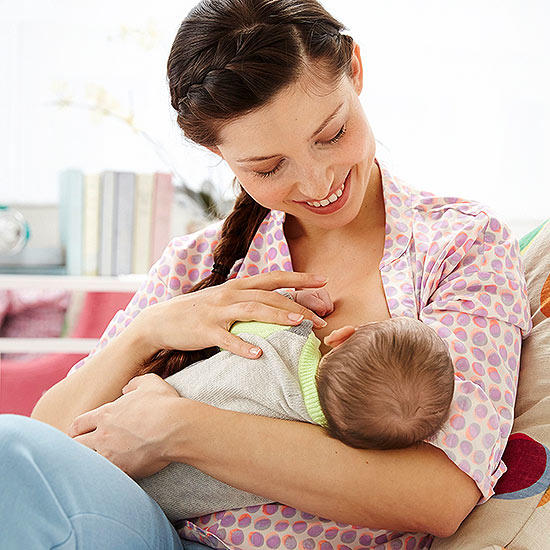
If the baby responds normally to pea soup, then it can be introduced into the diet on an ongoing basis.
When can I have pea soup during breastfeeding? Some women ate the dish when their baby was only 2-3 months old, and no negative symptoms were detected. It all depends on the individual characteristics of the child’s body.
Mothers of a newborn who constantly suffers from colic should not consume pea soup until 4 months. Better yet, postpone this dish until six months.
And if the baby is completely healthy, then a nursing mother can try pea soup at 2-3 months.
Rules for eating pea soup
With hepatitis B there are the following subtleties:
- For the first time, a woman can try 1 teaspoon of boiled peas.
- It is necessary to monitor the baby’s behavior for two days. Does his tummy hurt or is he constipated? Any of these symptoms will indicate the need to completely abstain from peas before the baby is 6 months old. If no negative reaction occurs, then you can eat boiled peas for a week, gradually increasing the portion. Then you can move on to eating soup.
- The dish is best prepared from dry peas, since fresh ones are much less digestible by the stomach.
- For the first time, the concentration of the product should not be high.
- Under no circumstances should you add smoked meats to the soup.
- If the baby feels normal, then during breastfeeding the dish can be consumed 1-2 times a week.

After the baby is 6 months old, fresh peas are allowed to be introduced, and after 7-8 months - canned peas.
How to cook pea soup correctly
All dishes that a woman consumes during lactation should be dietary, light, and consist entirely of healthy foods.
When can I have pea soup while breastfeeding? The dish can be prepared if the child’s body tolerates it normally.
When preparing pea soup, you should avoid frying it in vegetable oil, and for the broth it is best to use turkey, chicken or beef. It is strictly forbidden to add seasonings and spices to the dish, with the exception of salt and herbs.
How to prepare pea soup for a nursing mother?
The simplest recipe! For the soup you will need peas (preferably split), onions, carrots, salt, herbs, butter.
Before you start cooking, peas should be thoroughly washed. Then soak it for several hours.
If you are planning to prepare the soup in the morning, you can soak the peas overnight.
Soaked and once again washed peas are poured into boiling water so that there is three times more water than the peas themselves (otherwise it will turn out to be porridge).
Is it possible to have millet porridge while breastfeeding and why is it good?
It must be said that after soaking, the pea soup will only cook for about 40 minutes. Somewhere in the middle of cooking, add chopped onion to the pan, add one bay leaf, and salt to taste.
5 minutes before readiness, add chopped carrots and stewed in vegetable oil to the soup. It is better to grate it on a coarse grater and keep it in a frying pan until soft. But under no circumstances should you fry it! Such carrots will give the taste softness and tenderness. And, if you know, it is from such carrots that carotene is well absorbed.
Add finely chopped herbs (preferably dill) a couple of minutes before the end of cooking.
You will see that the soup is ready when the peas are completely boiled and the dish itself has acquired the consistency of a medium-thick mush.
A mother who is breastfeeding should really like pea soup prepared in this way. As you noticed, it does not contain traditional potatoes, which means there are no extra calories, no increase in blood sugar levels.
For obvious reasons, during breastfeeding a woman has to limit herself in food. The use of certain foods while breastfeeding is not recommended, since allergenic or harmful substances can enter the baby's body through milk. Some women ask if a nursing mother can have pea soup? We will answer this question in this article.
As you know, all legumes increase gas formation in the intestines. Peas are no exception. It is precisely this characteristic that makes us think about whether it is worth consuming peas (in particular pea soup) during breastfeeding? After all, despite the danger of bloating in the mother and baby, it is very useful.
Recipe for soup for breastfeeding
If the baby is 3 months old, then it’s time for the nursing mother to try pea soup. There are a lot of accessible and healthy recipes.
Is it possible to have pea soup during breastfeeding? Only after the baby is 3 or more months old will a woman be able to try this dish. To do this, you need to take the following ingredients: dry peas (200 g), 500 g chicken breast, 4-5 potatoes, 1 carrot and 1 onion, 3 liters of water, salt, bay leaf.
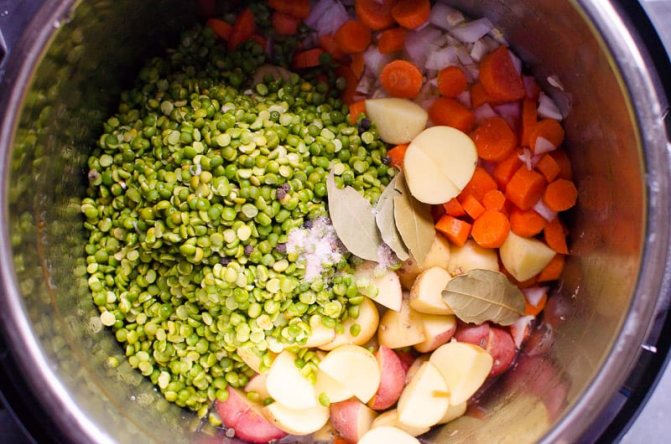
You need to soak the peas overnight. In the morning, drain the liquid, put on fire and add a liter of water. Cook the peas until tender - 40-60 minutes.
At this time, cook the broth in 2 liters of water. Remove the meat and chop it. Cut the peeled potatoes into cubes, chop the onions and carrots. Add all the vegetables along with the peas to the broth. Add salt and cook until done. At the end, the dish can be turned into puree soup using a blender.
